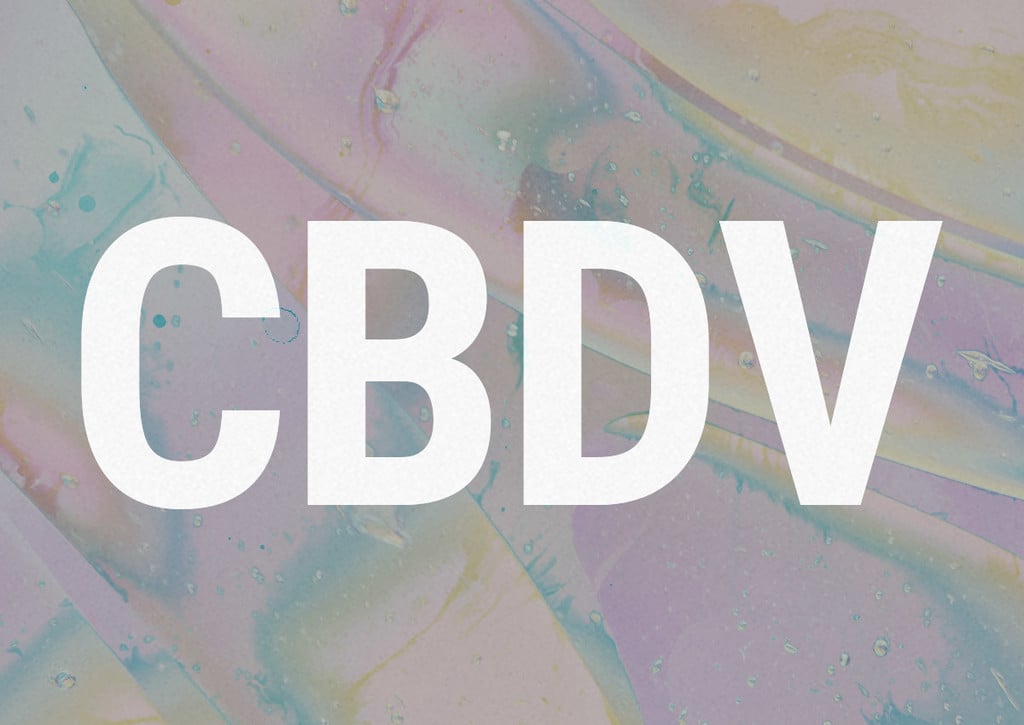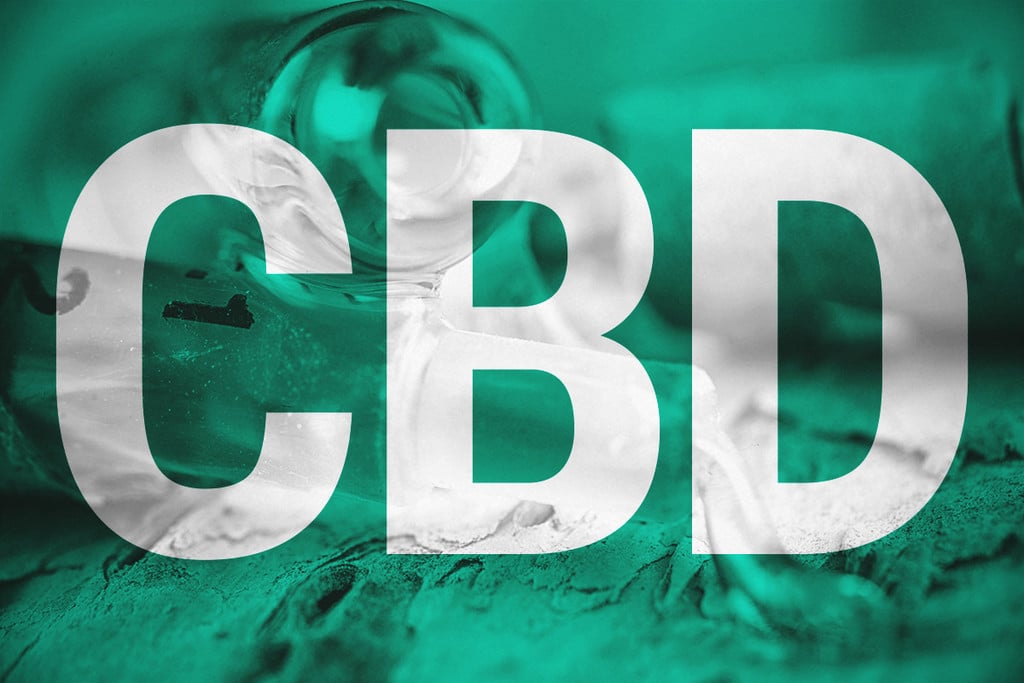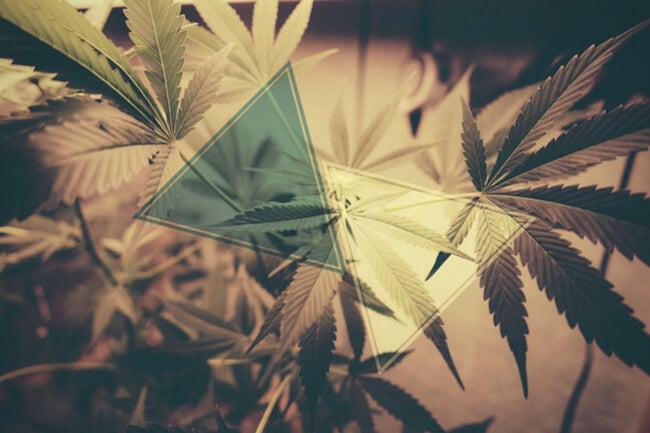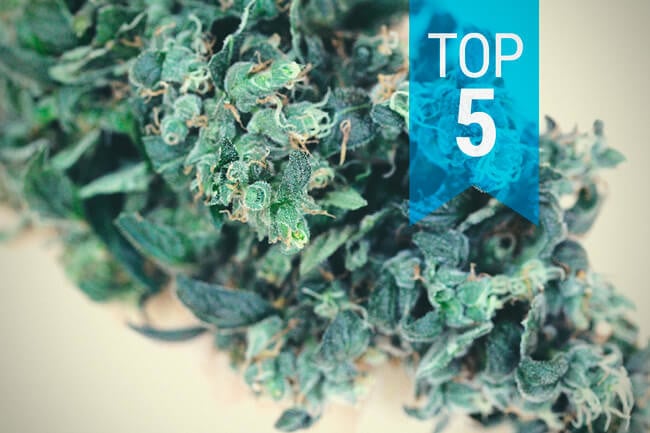.
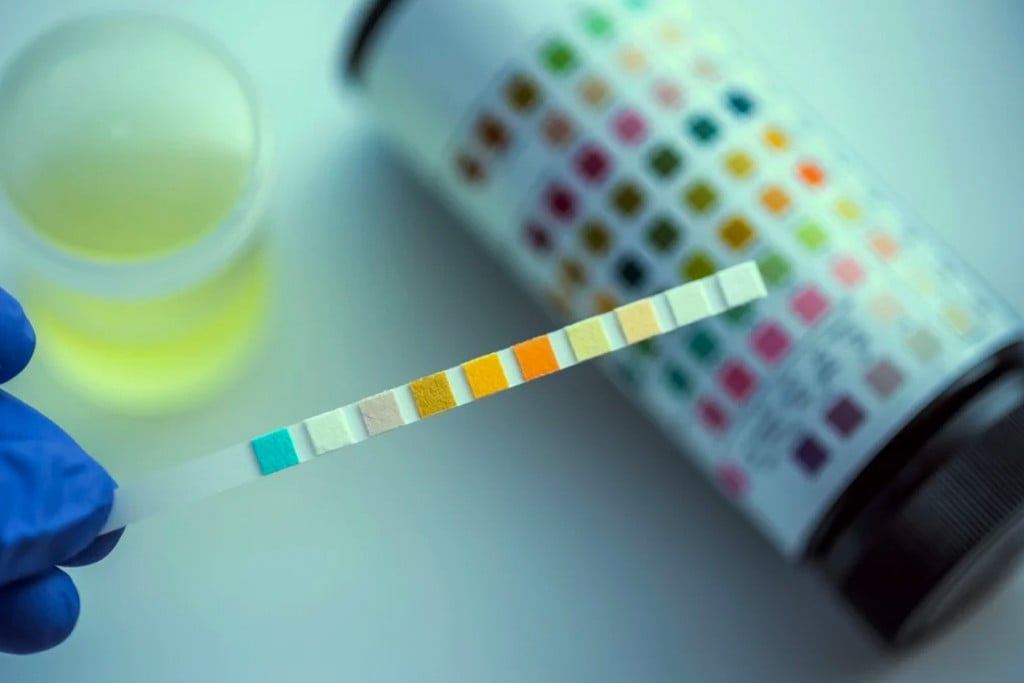
Will CBD Oil Trigger a Positive Drug Test?
CBD is a cannabis compound mainly known for its potential health benefits. But, can it lead to a positive drug test? Let's dive in.
Contents:
Thanks to worldwide legalization efforts, cannabis is getting its due recognition. Cannabidiol, or simply CBD, has made its presence known by exerting a variety of effects on the body, making it a prime candidate for potentially alleviating certain conditions and generally boosting health and wellness.
And, unlike its close cousin THC, CBD isn’t psychotropic. It won’t produce the same mind-altering effects that the magic herb is best known for, making it suitable for near-universal use.
Yet, despite the progress that’s been made in some areas, cannabis remains a prohibited substance in many aspects of society. In corporate offices and government positions, for example, stringent drug testing measures will tell you how unforgiving these companies and institutions are concerning marijuana use.
Now, we did mention how CBD isn’t one to skew your sense of judgment in any way, but can it lead to a positive drug test and cause you some trouble? This article should answer that question in depth.
How Do Workplace Drug Tests Work?
If you’ve gone through a pre-hiring drug test, you were likely subjected to submit a urine sample. In fact, this is the most common drug testing procedure for cannabis.
But here’s a tidbit you might not know: urine tests don’t go after THC. Instead, they go after THC-COOH, a metabolite that THC creates upon entering the body.
The reason most tests go after this metabolite is that it stays in one’s system longer. In occasional users, THC-COOH can be detected in urine for about 3–7 days after use. In regular users, THC-COOH can be detected in urine for several weeks, usually 10–21 days. In chronic and long-term users, THC-COOH can be detected for more than 30 days, and in some extreme cases, up to 90 days or more.
Many companies these days have turned to saliva swab tests. The reason? Saliva tests are more accurate for detecting recent cannabis use because of their short detection window and the presence of active THC. However, they may not be effective for detecting long-term use (THC is typically only detectable in saliva for a period ranging from several hours to two days).
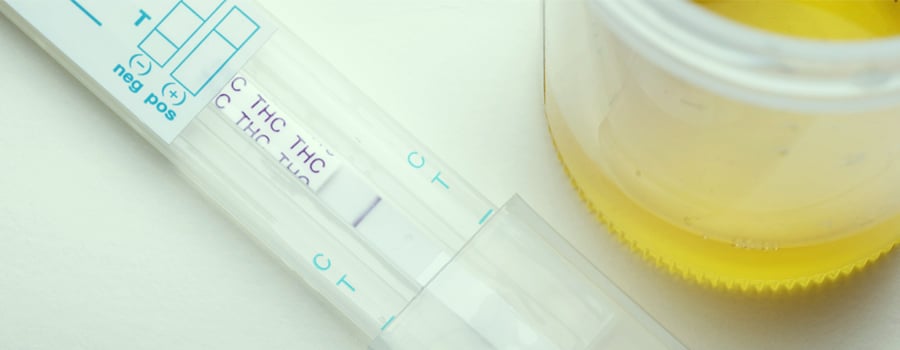
What Is the Detection Threshold for THC?
For the standard urine drug screening, THC-COOH levels at or above 50ng/ml will signal a positive test result.
For infrequent smokers, a few days of abstinence should be enough to eliminate the chance of a positive result. Chronic smokers, as mentioned above, could test positive a month or more after smoking. However, it's worth noting that individual biochemistry plays a significant role in how much THC-COOH stays in the system. Moreover, factors such as exercise and hydration also play a role.
Oral tests looking for THC will render a positive result at 4ng/ml, with a "confirmatory" threshold of 2ng/ml. Blood tests, which are typically only administered as a result of suspected impairment while driving, are looking for whole blood THC levels of 5ng/ml and over.
Will CBD Oil Show Up on a Drug Test?
So, what about a CBD drug test? Is this something to worry about? This is a valid question to ask. You can rest assured knowing, at least in the United States and Europe, that CBD isn’t amongst the screened substances, as it doesn’t get you high. For that reason, no standard exists to measure the levels of cannabidiol in one’s body.
Another thing: most hemp-based CBD products on the European market only contain up to 0.2% THC (0.3% THC in America). That is a very small amount to be detected by any drug testing procedure.
Does CBD Oil Contain THC?
Most people are under the impression that the CBD oil they consume is completely devoid of THC. But that is clearly not the case.
First, let’s draw the line between hemp and marijuana, which are commonly mistaken to be the same. The main difference between the two is that hemp is almost completely devoid of THC, whereas marijuana can contain up to 30% (or more) in its buds.
CBD is mainly derived from hemp, but it becomes a bit tricky when extracted and concentrated into oil. One reason could be inferior practices that result in THC cross-contamination. It usually happens during the extraction process and is more common among products sold in marijuana dispensaries.
As a consumer, you’ll also want to be wary of low-quality brands making grandiose claims. There’s a good chance that a given product may contain more THC than it should, and that could get you in a bind.
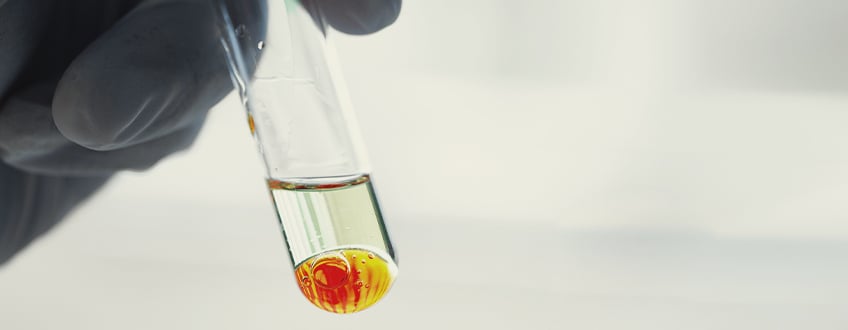
What About Full-Spectrum CBD Oil?
For the uninformed, full-spectrum CBD oil is a product that contains all cannabinoids, including THC. How much THC is in CBD oil, you ask? The amount is so little, it won’t be enough to get you high.
If you have a product that’s accurate as advertised, THC levels shouldn't exceed that 0.2/0.3% mark. You would need to take copious amounts of CBD oil to register a positive drug test.
Can CBD Oil Cause a False Positive Drug Test?
As the name suggests, a false positive drug test means an individual was found to have traces of an illicit substance in their body, even if they haven’t taken one. And if you, unfortunately, fall victim to it, your life and/or career as you know it could be over in a snap.
Not all tests are 100% accurate. There are times when errors happen in the lab as the tests are conducted. But in most cases, it’s usually due to the presence of certain foods and over-the-counter medication.
A handful of substances can cause a false positive drug test, like poppy seeds (which contain codeine and morphine), antidepressants, certain antibiotics, and, of course, cannabis.
Now, can CBD oil cause a false positive? In certain cases, it can. Some states in the US allow up to 5% THC in their CBD oils. If these oils are taken in large quantities often, then there’s a chance for a false positive to occur for the presence of THC.
Can CBN Cause You to Fail a Drug Test?
Things start to get a little complicated when discussing CBN—a non-psychotropic cannabinoid that results from THC's degradation. Due to its molecular similarity to THC, it is indeed possible for CBN to cause a false positive drug test.
In fact, researchers believe[1] false positives "caused by CBD" are in fact caused by the presence of CBN, as CBD by itself does not trigger a positive result. This false detection is the fault of antibodies used in these immunoassays, some of which are more accurate than others. In any case, low levels of CBN are still unlikely to trigger a positive result—but it is possible.
How to Check if CBD Oil Has Any THC
If you’re an avid CBD oil user, you’ll want to make sure that the products you’re taking won’t get you into any trouble. Trace amounts of THC will be fine, but as previously mentioned, you wouldn’t want to go over the 0.2/0.3% threshold.
So, here are some ways to check if your CBD oil is over the THC limit to help avoid any trouble with your mandatory drug tests.
-
Do Your Research Beforehand
We’re living in a world where vital information is readily available online. Especially if you’re buying products from a legitimate source, you’ll be able to do thorough background checks through the company’s website.
So, before making any purchase, be absolutely sure you know what’s in the stuff you’re taking. Check the purity of the product and see if there’s a possibility of contamination. Companies that publish third-party lab tests of their cannabinoid levels are arguably the most reliable to source from. Also, look to customer reviews on independent websites—these can be extremely valuable in helping you make a decision.
If you can, consult with a professional before diving right in. Your life and career could be hanging in the balance, and one small mistake could lead to more significant repercussions.
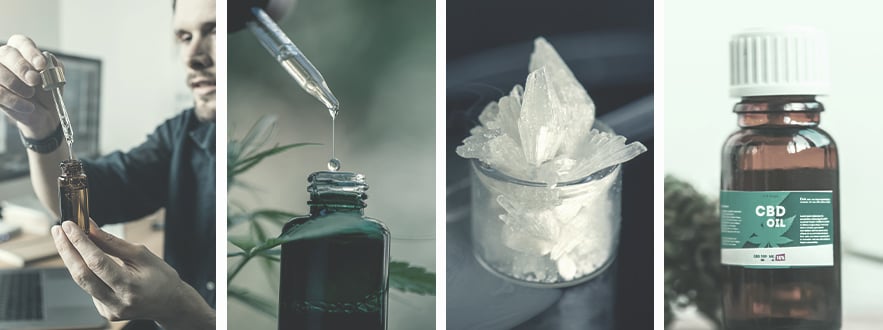
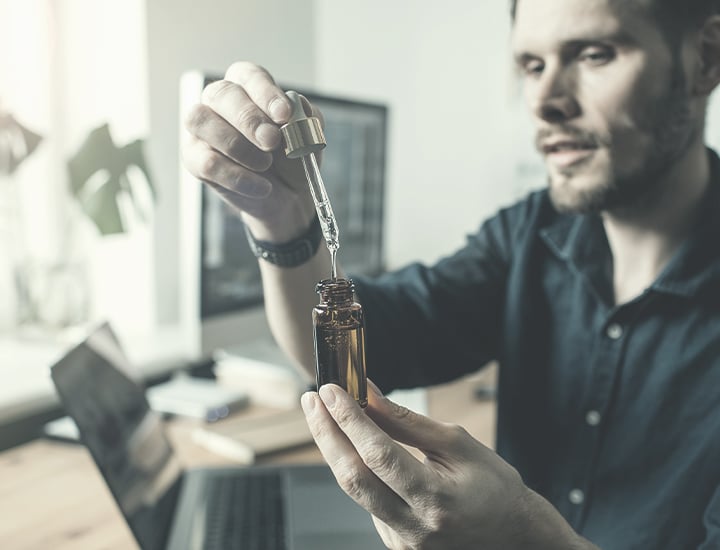
-
Stick With CBD Isolates
If you’re all about CBD, you may want to take it in the form of an isolate, as opposed to a full-spectrum formula. Even if the latter is deemed to be more effective thanks to the entourage effect, taking CBD isolate would eliminate any chance of a positive drug test for THC.
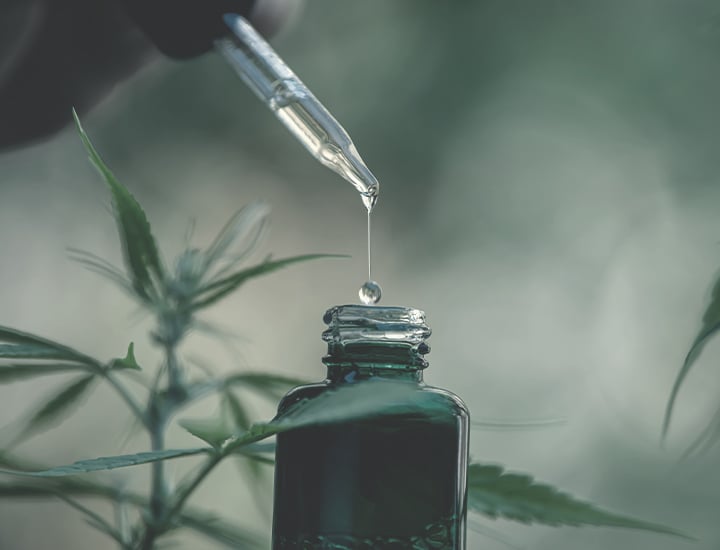
-
Go With CBD Crystals
CBD crystals contain around 99% CBD, with the remaining 1% usually made up of terpenes. For this reason, CBD crystals are popular amongst those undergoing frequent drug testing.
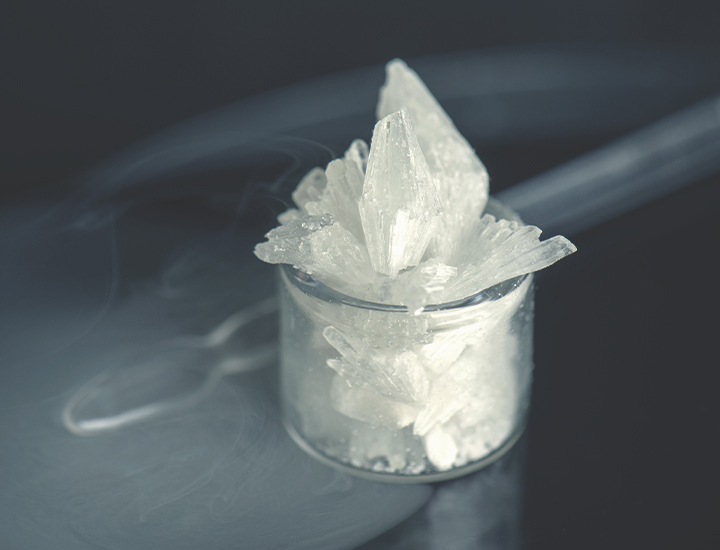
-
Read the Label
You may have a reliable source, but you should also know what to look for. Specifically, you’ll need to check on lot numbers, batch numbers, and retained batch samples.
You’ll then want to get third-party validation that the product you’re about to use is from plants that are genetically engineered to contain very little to no THC. You’ll also want to make sure that they use methods to purge out the substance completely.
These days, you can never be too sure. False advertising is rampant, especially with how easy it is to make the packaging look like the CBD oil comes from a legitimate source. It’s easier to fall victim to it, so do your best not to be part of that statistic.
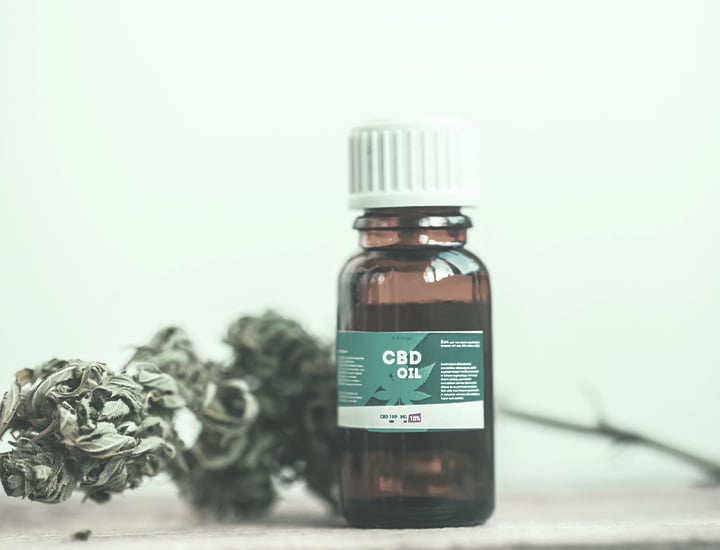
Will CBD Oil Trigger a Positive Drug Test? — The Bottom Line
To answer the question with finality, yes, there’s a slim possibility of your CBD oil drug test causing a positive result and getting you into trouble. But even that is still within your control. And, it’s not the CBD itself that’s responsible.
It’s all a matter of having full knowledge of the products you’re taking. Only go for legitimate stuff, and when in doubt, ask a professional for help.
Hopefully, we’ve provided you with sufficient information. Just follow these tips, and you should pass your test with flying colours while still being able to enjoy quality CBD oil!
- Study: Pure CBD doesn't cause a positive drug test, But CBN might - UPI.com https://www.upi.com
- Immunassay – Wikipedia https://de.wikipedia.org


























